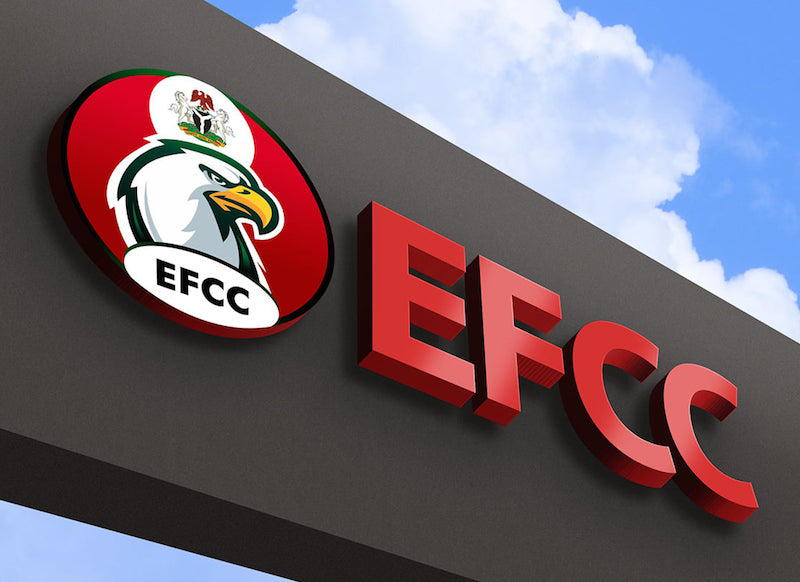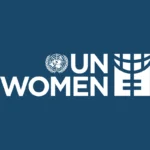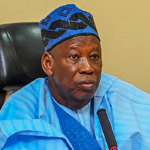In the heart of Nigeria’s democracy and current political landscape, the lack of adequate mechanisms to make elected individuals operate transparently, accountable and responsible during and post-service has become so glaring with recent revelations uncovering shocking acts of greed and betrayal thus perpetuating a cycle of unfulfilled promises and impunity which poses a significant challenge to Nigeria’s democracy.
Despite being elected based on manifestoes, promises, agreements, set offs and intrigues, elected representatives, once in power, seem to evade responsibility and accountability for unfulfilled promises and questionable actions during their tenure. Even those with pending cases at the Economic & Financial Crimes Commission (EFCC) or Independent Corrupt Practices and Other Related Offences Commission (ICPC) seem immune to scrutiny and manage to manoeuvre their way back into elections without substantial repercussions.
The essentials for good governance
Based on the “Principles of Public Administration – 2023” developed by SIGMA for OECD and EU countries, which act as benchmarks for EU accession, three fundamental tenets of public administration are pivotal for efficacious governance:
Transparency: This principle ensures that citizens can obtain information regarding governmental operations, fostering an environment of openness.
- UNICEF, Nigerian media leaders partner to boost children’s rights advocacy
- Years after, schools hit by abductions remain closed
Accountability: This mandates that politicians and public servants provide explanations for their conduct and are answerable for their performance or its absence.
Competence & Responsibility: This obliges government officials to prioritize the public good, exercise their duties with integrity, and manage public resources judiciously.
The principles highlighted above are well anchored in the 1999 Nigerian Constitution as amended severally:
Section 15(5): The State shall abolish all corrupt practices and abuse of power, emphasizing the government’s commitment to Accountability and Transparency.
Section 16(1): It is Responsibility of the State to harness the resources of the nation and promote national prosperity and an efficient, dynamic, and self-reliant economy for every citizen.
Section 70: Stipulates the remuneration of elected officials, which is determined by the Revenue Mobilization Allocation and Fiscal Commission and directly relates to the Principle of Accountability in public service.
Section 88 & 89: Grant the National Assembly powers to conduct investigations and exercise oversight functions over the executive. A key aspect of ensuring Accountability.
Section 153: Establishes the Code of Conduct Bureau and Tribunal, which are pivotal in enforcing standards of behaviour for public officers, thereby promoting Accountability and Transparency.
Fifth Schedule, Part I & II: Provides a Code of Conduct for public officers, detailing various prohibitions and requirements that promote integrity and impose punishments on public officers who violate it, thereby enforcing Accountability.
The dilemma facing Nigeria(ns)
Despite the constitutional safeguards, the current system gets exploited by the executives and legislators who operate with impunity, shielded from consequences by the judiciary even when implicated in corruption cases by agencies like the EFCC and ICPC?
Distressingly, the oversight mechanisms, including the state security vetting process and INEC’s role, are marred by inefficiencies, allowing tainted candidates to run for office without repercussion.
The following factors and players have contributed to the lack of accountability, responsibility and transparency in Nigeria’s public administration:
- The ethnic, religious, and regional diversity and divisions in Nigeria, instead of bonding us have created challenges for national integration, representation, and cohesion, and have fuelled conflicts, violence, and instability which clueless politicians have exploited fully.
- The oil-dependent and rent-seeking economy, which has generated enormous wealth and resources for the government, has also created opportunities and incentives for corruption, looting and carting of hard currencies, cash heist, incomprehensible mismanagement etc.
- The weak, fragmented political system and other contraptions called opposition parties, which have failed to provide ideological guidance, policy direction, and internal democracy for their members and candidates, and have relied on patronage, clientelism, and money politics to secure votes, power and favour from the ruling party.
- The poverty, hardship imposed on Nigerians, unemployment etc have combined to pauperize the citizens and limited their capacity and motivation to think straight, perform their duties and exercise their rights.
- While the institutional mechanisms in place such as the EFCC, the ICPC, the State Security Service (SSS), an agency responsible for, protection of national security interests, and for the vetting of candidates for public office, are so emaciated and starved to be of any use as a deterrence mechanism.
- The Independent National Electoral Commission (INEC), mandated to register and, regulate political parties, organize, conduct, and supervise elections in Nigeria, is so bogged down with mediocrity that it’s a mere “naira guzzling machine”.
- The labour unions and human rights organisations lack coordination, cooperation, and synergy amongst them which have created confusion and conflict in their objectives and mandates and are so bewildered to the point of “intoxicated stupidity”.
- The traditional institutions and religious bodies are like “flies” which the conspiring elected representatives use the “vinegar trap” on and so are in no fit-state to stand up to bad governance being perpetrated on Nigerians.
- The judiciary looks like it is compliant to the appendage of kleptocrats and thus assist to the exploitation of loopholes within the system.
- Finally, the “fat dogs” have been made so comfortable on their “sugar candy mountain barracks” by “Napoleon on the rock” and his predecessors that it is not feasible for them to “bell the cat”.
House of greed and betrayal
As the National Assembly gets set for a new round of an exercise in futility of amending the constitution, that has cost the nation N24bn over the last 24 years with only 30 amendments done, is a world record in terms of cost and inefficiency at approximately 1.3 amendments per year at the cost of N1.3bn/year in addition to other funds released to committees and also at the various states level. The exercise has now become a ceaseless jamboree where it is the “whims and caprices” of those that hold Nigeria by the jugular that gets attentions.
Lest we forget, the recent exposé of the largesse of N500m dish out to members of the National Assembly with some claiming receiving less and others none at all, coupled with the mind-boggling heist of N20bn allocated to the constituency of the Senate president, leaving other Nigerians to fend for themselves. Additionally, the alleged padding of N3trn into the 2024 budget and others over the years shows that the scale of this betrayal is staggering.
Only in Nigeria will you find the National Assembly being the body that approves, amends, (mis) appropriates, executes and performs oversight functions of the budget. This is an aberration and insane.
Time to search for the right political system
As Nigeria grapples with the stark reality of a political system in shambles, with its elected representatives living in opulence and luxury while its citizens are ensconced in pervasive poverty caused by incompetent governance over the years, now is really the time to come up with a political system that will truly be home grown, meet the challenges of the current political terrain, and robust enough to stop the wanton pillaging of public resources.
But is it possible to have the right political system in Nigeria? The answer is yes!
Alhaji Adamu Rabiu sent in this piece from Kaduna

 Join Daily Trust WhatsApp Community For Quick Access To News and Happenings Around You.
Join Daily Trust WhatsApp Community For Quick Access To News and Happenings Around You.


